How not to miss your flight to Africa
By Edwin Okongo Mshale Contributing Editor


To say that the COVID-19 pandemic has disrupted the way we do things would be an understatement. The coronavirus, which is still spreading, has infected nearly 620 million people globally, 6.5 million of whom have died. But as devastating has it has been, it has made health care experts and policymakers to start thinking ahead and prepare better in case another pandemic strikes, and also to look at how they can streamline screening procedures to detect highly contagious diseases before they spread across borders.
Before the pandemic, many of us only needed to leave home with house keys, a phone. But the list has grown to include masks and hand sanitizers. If you’re leaving home for a short while, forgetting some of those items is no big deal. You can

easily turn around, or buy them at the corner store. But what happens when you are travelling internationally?
In June, my family and I missed a flight from San Francisco, California, to Kenya to visit relatives we hadn’t seen in many years. We had planned the trip for the summer of 2020, but the pandemic forced us to postpone it then and in 2021. When it became relatively safer to travel, it didn’t occur to us that the pandemic had changed travelling so much that we needed more than just vaccinations, masks, and sanitizers.

When we got to the airport, the airline refused to let us on the plane because we had neither registered with Kenya’s Ministry of Health, nor uploaded our proof of vaccination to Global Haven, a COVID-19 test and vaccination validation site of the United Nations Development Programme. Of course we learned that after we’d stayed in the queue for an
hour to get to the desk. And, as fate would have it, the Kenyan website was down. By the time we got through, the plane had departed. The airline wanted more than $20,000 to book my wife and I, and our two children for a flight the following day, on top the $5,000 we would lose because we had bought our tickets from a third party.
Since then, I have heard from three friends who also missed their flights because they didn’t realize the extent to which COVID-19 has changed the way we travel.
Immigrant communities like ours aren’t often the primary targets of travel security and health advisories from government agencies. Because of our foreign origin, our needs are also very unique, compared to American-born travelers. Immigrants are also significantly less well-off financially, which might make paying to reschedule a flight very expensive, and even impossible, and ruin trips we’ve
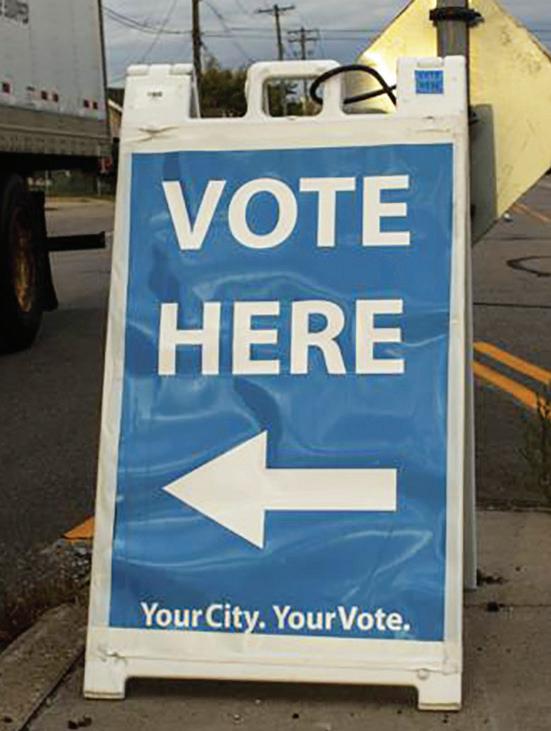
taken years to plan. As many of us get ready to travel home for Christmas, what are some of the steps we need to take to make sure our travel goes smoothly?

Recently, I posed that question two experts from Minnesota Department of Health (MDH), who were generous enough to give Mshale an exclusive interview tailored to our community. Kathryn ComoSabetti is the epidemiology manager of the COVID-19 Epidemiology at MDH, who for nearly 20 years has worked on various projects, including disease surveillance and pandemic influenza planning. Como-Sabetti says that before traveling, it is important to research the COVID-19 requirements for not just your final destination, but also wherever you plan to make a stop, even if it’s for a layover.
“There are some
P.4 The Jollof Wars: Liberia wins the battle of the Twin Cities
Early voting for Nov. 8 election has started in MinnesotaP.2
P.9
P.10 Review: Seun Kuti concert in Minneapolis
Women of color find safe spaces for faith and healing
Minnesota health officials advises those traveling internationally to research the COVID-19 requirements for not just their final destination, but also wherever stops or layovers are planned.
Photo: Jacob Lund/Shutterstock
OCTOBER 3-9, 2022Issue # 542 www.mshale.comINSIDE THE AFRICAN COMMUNITY NEWSPAPER
See Travel on Pg. 5
Celebrating Houston White
The Houston White for Target collection is an exciting collaboration that shows the importance and possibilities of working together to move culture forward. This collection is distinct, stylish, and inclusive to all. Houston believes your style is a celebration of who you are. When we celebrate passion and style from unique perspectives, we cultivate stronger communities.
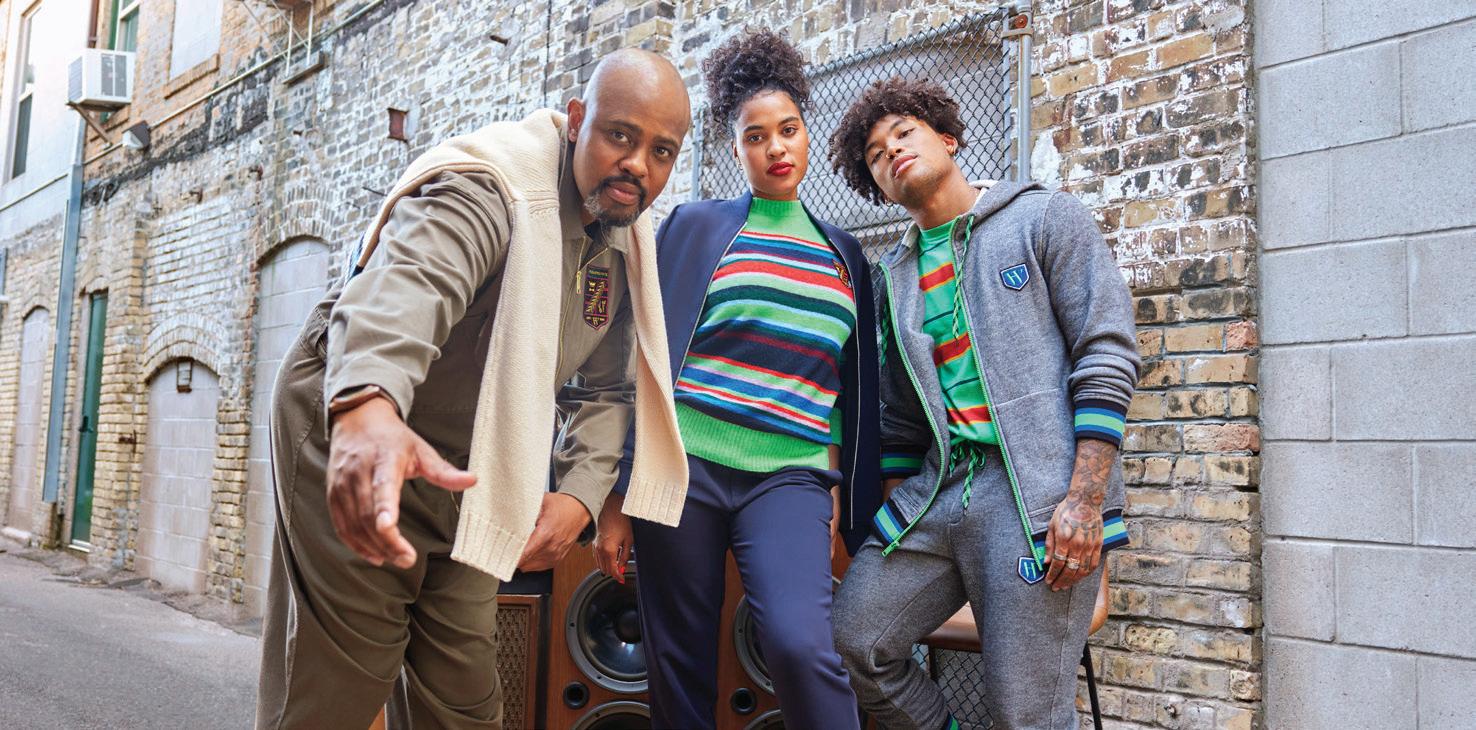
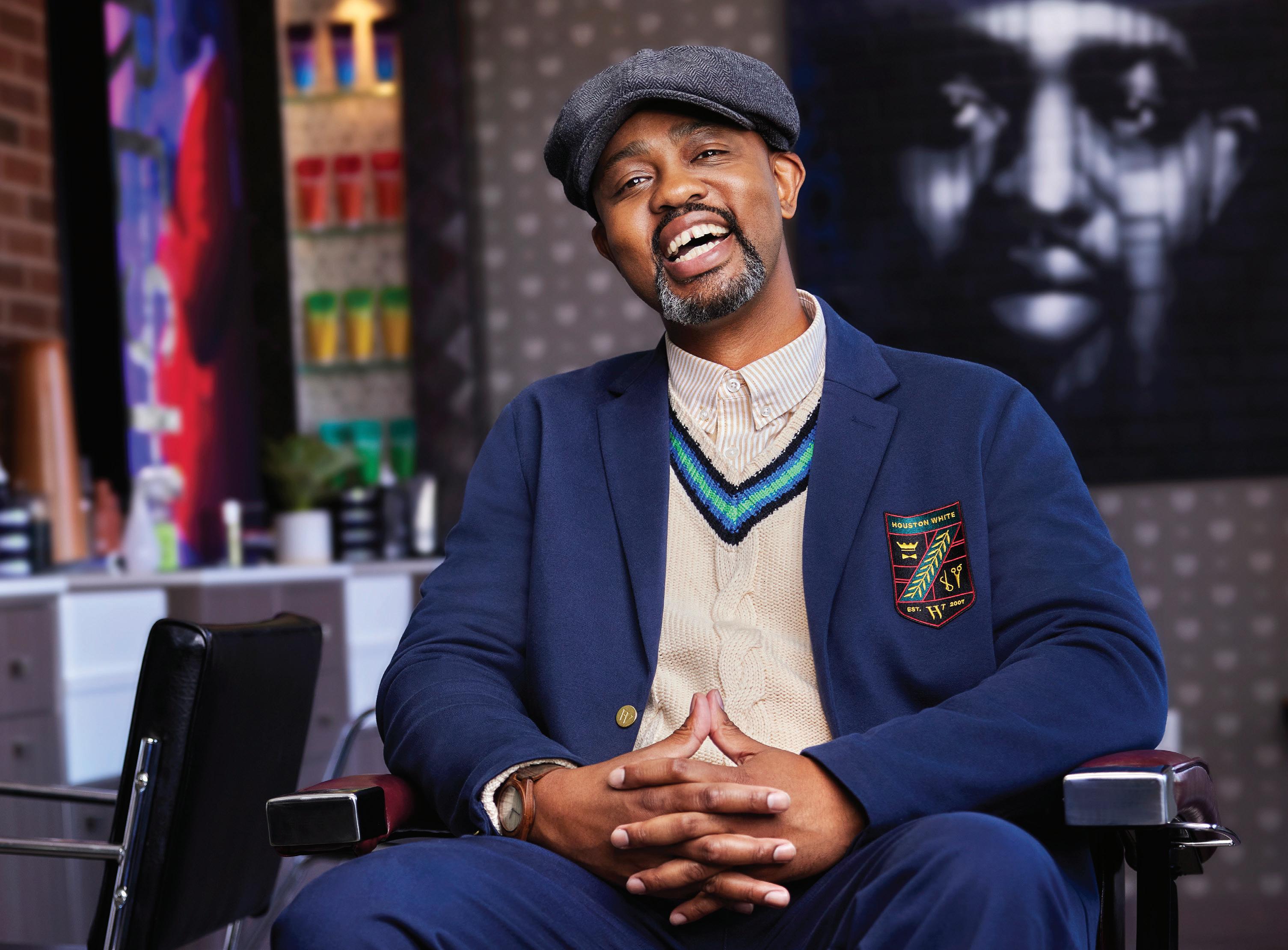
Investing in ourselves, makes us all shine.
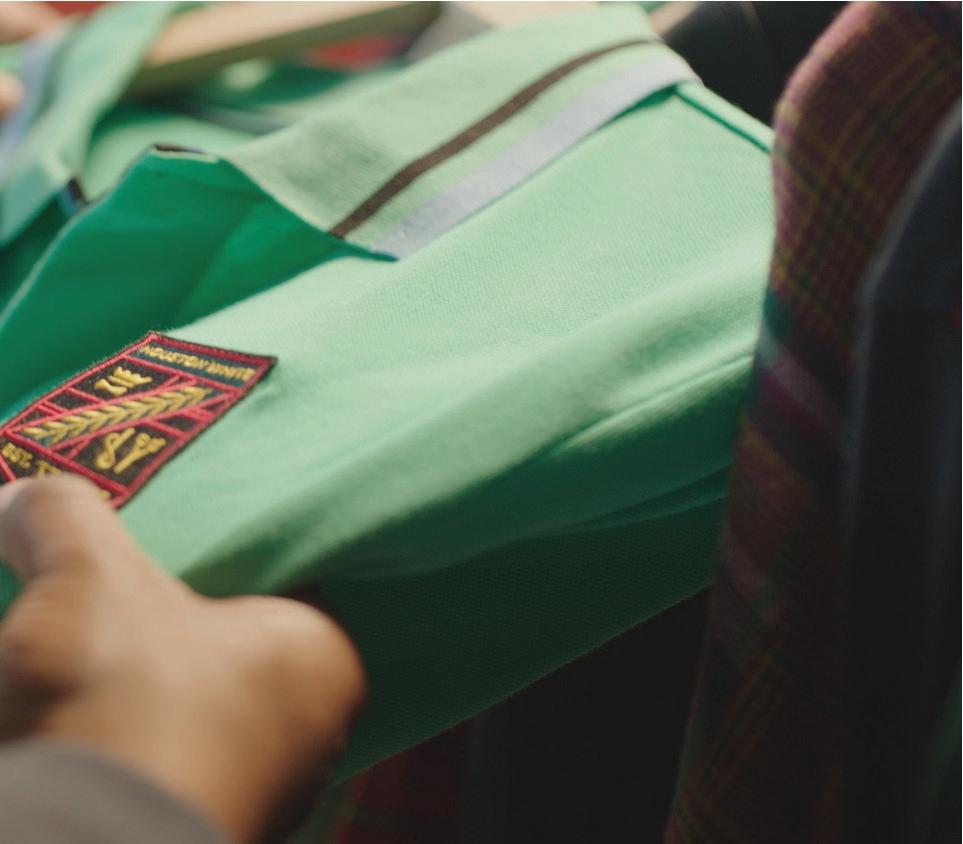
 get inspired by Houston White’s story
get inspired by Houston White’s story
- The African Community Newspaper www.mshale.com October 3-9, 2022 Issue 5422Mshale
@2022 Target Brands, Inc.
Guest Commentary by Ben Jealous
bans are an attack on the freedom to read, teach and learn
Truth is a threat to authoritarianism. Reading is a path to truth. That’s why the freedom to read is essential to the freedom to learn. And that’s why the freedom to learn is often attacked by those who abuse power and those who cling to it.
Every year, the American Library Association and partner organizations observe Banned Books Week to highlight and push back against these threats. This year’s Banned Books Week runs from Sept. 18-24 amidst a wave of book bans and other attempts to restrict what people can learn.
These efforts have a long and dishonorable history.

Before the Civil War, many slave states made it a crime to teach enslaved people to read. Slaveholders feared that being able to read might help enslaved people gain their freedom or organize rebellions. In Virginia, a judge could order that any slave or free person of color caught learning to read or write be whipped.
In our day, attacking the freedom to read is once again a political strategy for those seeking to take and keep power. And once again, Black people are a primary target.
State legislators and governors are making it illegal to teach honestly about the history and reality of racism in our country. Far-right activists are trying to purge schools and libraries of books that feature Black people, LGBTQ people, and others they deem unworthy of students’ attention.
The MAGA movement’s attacks on teaching about racism and sexuality have led to what the American Library Association’s Office of Intellectual Freedom has called an “astronomical” increase in challenges to books.
That’s why the annual celebration of the freedom to read that is Banned Books Week is especially meaningful this year. In addition to the librarians, authors, booksellers, teachers, and other anti-censorship activists who lead Banned Book Week activities, all of us have a role to play in ensuring the voices of our communities are not silenced.
Books by and about Black people and other people of color — and by and about LGBTQ people — dominate the ALA’s annual list of most frequently challenged
books. This year’s honorary chairman, George Johnson, is an award-winning Black author whose “All Boys Aren’t Blue” is high on the list of books most challenged last year, along with others dealing with racism, racial identity, and sexuality.
“This is a fight for the truth that has always existed even if it rarely gets told,” Johnson says. “When the youth are empowered with stories about the experiences of others, they become adults who understand the necessity for equity and equality and have the tools to build a world the likes of which we have never seen.”
But far-right activists tell parents that words like “equity” are code for Marxism and something they should fight. Trump Republicans are encouraging MAGA activists to take over their school boards by running propaganda campaigns about “critical race theory.”
Trumpish state legislators are introducing laws to make it illegal to teach anything that might make white students experience “discomfort.” One Texas lawmaker demanded information from schools on 850 books he thought were suspect; his list included works on history and human rights. In Virginia, Gov. Glenn Youngkin set up an email hotline for people to report teachers suspected of “divisive” practices.
Books targeted in the current war on truth include a memoir by Ruby Bridges, which tells the true story about her walking through angry mobs when she was a six-year-old who became the first Black student to attend a New Orleans elementary school that had previously been off-limits to non-white students.
This is an important part of our history. We cannot build a future together if we are not willing to honestly face the truth about our past and our present.
Banned Books Week is a good time to commit ourselves to defending the freedom to read, teach, and learn about our history — and to opposing those who want to make it illegal to teach about that history or make it impossible for educators to do so without being smeared and harassed.
Ben Jealous serves as president of People For the American Way and Professor of the Practice at the University of Pennsylvania. A New York Times best-selling author, his next book “Never Forget Our People Were Always Free” will be published by Harper Collins in December 2022. He wrote this for the Post News Group where it first appeared.
- The African Community Newspaper www.mshale.com October 3-9, 2022 Issue 542Mshale 3
Join the Mshale Text Club: Text AFRICA to 24587 or follow us onTwitter.com/Mshale Community News, updated daily on Mshale. com Book
© 1995-2022 Mshale Communications, Inc. Mshale – The African Community Newspaper Editorial & Corporate Office: 2 E Franklin Ave., Suite 1 Minneapolis, MN 55404 Mailing Address: P.O.BOX 80071, Minneapolis, MN 55408 Tel: 612-454-5648 Email: mshale@mshale.com www.mshale.com President & Publisher: Tom Gitaa Contributing Editor: Edwin Okong’o Staff Writers: Kari Mugo, Bethel Gessesse, Cynthia Simba, Panashe Matemba-Mutasa Contributing Writers: Susan Budig Design & Layout: Staff Photographers: Richard Ooga, Bethel Gessesse, Jasmine Webber Distribution: Bluebird Mshale is published weekly on Monday. It is available every Monday for free at most African stores , African restaurants and metro area county libraries. Mailed subscriptions are $60 per year. Memberships: Minnesota Multicultural Media Consortium (MMMC) , Pan African Business Alliance (PABA). The editor welcomes letters, opinion pieces and commentary on issues of interest to the African community in North America. Contributions must be typed and will be edited for clarity and space. Submissions can be mailed or submitted online at www.mshale.com
In-person voting starts in Minnesota
MINNEAPOLIS (AP) — In-person voting for the midterm elections opened Friday, Sept. 23 in Minnesota, South Dakota, Vir ginia and Wyoming, kicking off a six-week sprint to Election Day in a landscape that has changed much since the pandemic drove a shift to mail balloting in the 2020 presidential contest.
Twenty people voted in the first hour as Minneapolis opened its early voting cen ter, taking advantage of generous rules that election officials credit with making Minnesota a perennial leader in voter turn out. First in when the doors opened was Conrad Zbikowski, a 29-year-old commu nications and digital consultant who said he has voted early since at least 2017.
“I like to vote early because you never know what might happen on Election Day,” said Zbikowski, displaying his civic pride with a T-shirt that bore the sailboat logo of the City of Lakes. “You might get sick, you might get COVID, you might get in a car crash, there’s many things that can happen. But what you do have control over is being able to vote early and get ting that ballot in.”
The start of in-person voting comes as the nation continues to grapple with the fallout from nearly two years of false claims that the 2020 presidential election was stolen from former President Don ald Trump due to widespread fraud and manipulation of voting machines. Those conspiracy theories, promoted by a con stellation of Trump allies in the campaign, on social media and at conferences held across the country, have taken a toll on public confidence in U.S. elections.
They’ve also led to tightening of rules that govern mail ballots in several Repub lican-led states as well as an exodus of experienced election workers, who have faced an onslaught of harassment and threats since the 2020 election.
But nearly two years since that elec tion, no evidence has emerged to sug gest widespread fraud or manipulation while reviews in state after state have upheld the results showing President Joe Biden won.
Saturday also is the deadline by which election officials must send ballots to their military and overseas voters. North Carolina started mailing out absentee bal lots Sept. 9.
Early in-person voting is offered in 46 states and the District of Columbia, according to the National Conference of State Legislatures. States may use differ ent ways to describe it, with some calling it in-person absentee voting or advanced voting. In some cases, it mirrors Election Day voting with polling locations equipped with poll workers and voting machines. Elsewhere, it involves voters requesting, completing and submitting an absentee ballot in person at their local election
office.
Early voting periods vary by state, with some offering as few as three days and others extending to 46 days. The aver age is 23 days, according to the confer ence of legislatures.
This year, voting will unfold in a much different environment than two years ago, when the coronavirus prompted a major increase in the use of mail ballots as voters sought to avoid crowded polling places. States adopted policies to pro mote mail voting, with a few states opt ing to send mail ballots to all registered voters and others expanding the use of drop boxes.
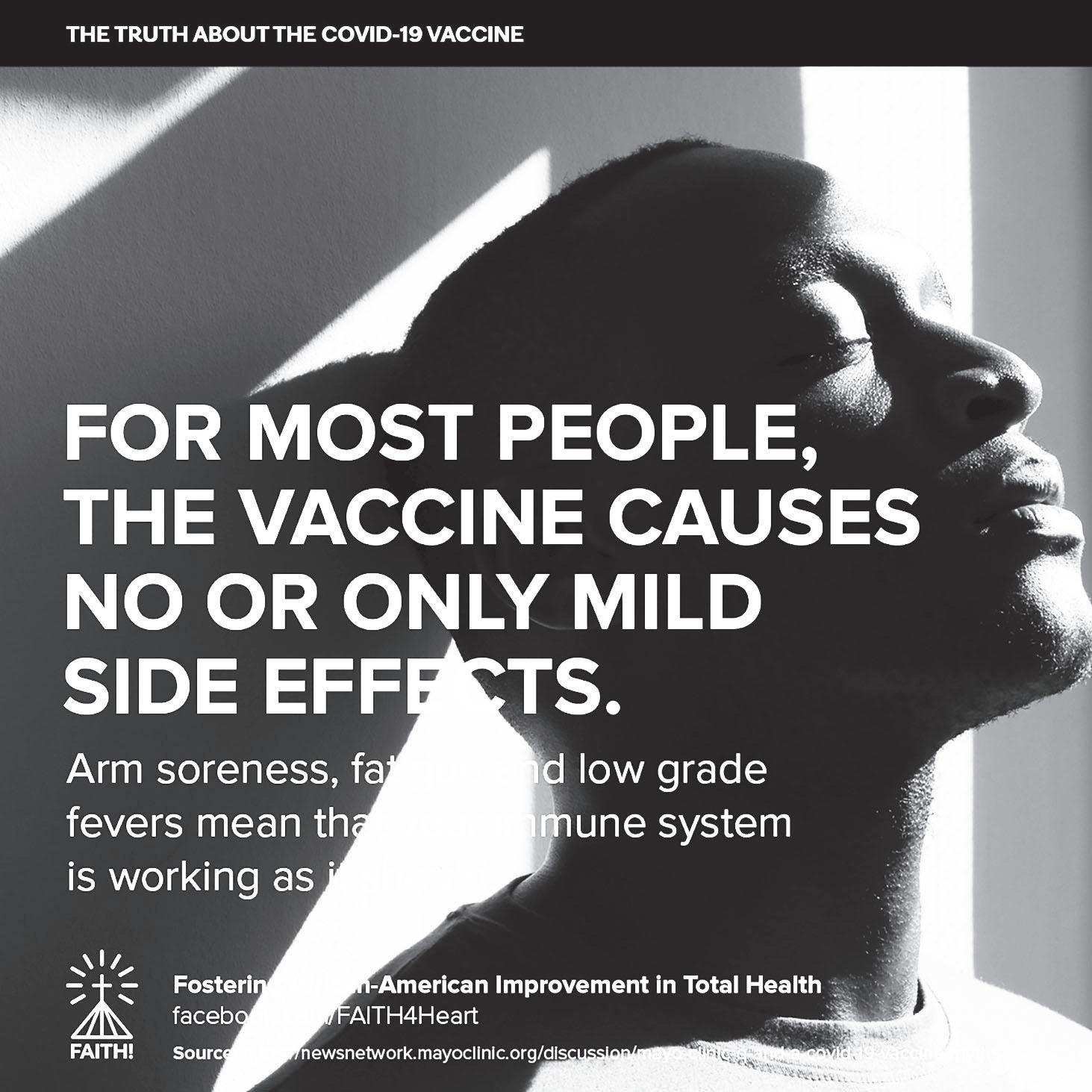
While some have made those changes permanent, others have rolled back them back. For instance, Georgia will have fewer drop boxes this year and has added ID requirements to mail ballots under legislation pushed by Republican state lawmakers.
In Wyoming, a steady stream of voters filed into the lone early polling place in Cheyenne, which offered a refuge from winds that toppled a “Vote Here” sign. About 60 people had voted there by mid day, Laramie County Clerk Debra Lee said.
“It’s less people and we don’t have to worry,” said one early voter, Brent Dolence of Cheyenne. “Things move faster and you don’t have to wait so much.”
Unlike elsewhere in the U.S., poll work ers in Laramie County haven’t been sub jected to threats and harassment, Lee said, but they’ve received plenty of ques tions from voters about machines and the county’s lone ballot drop box.
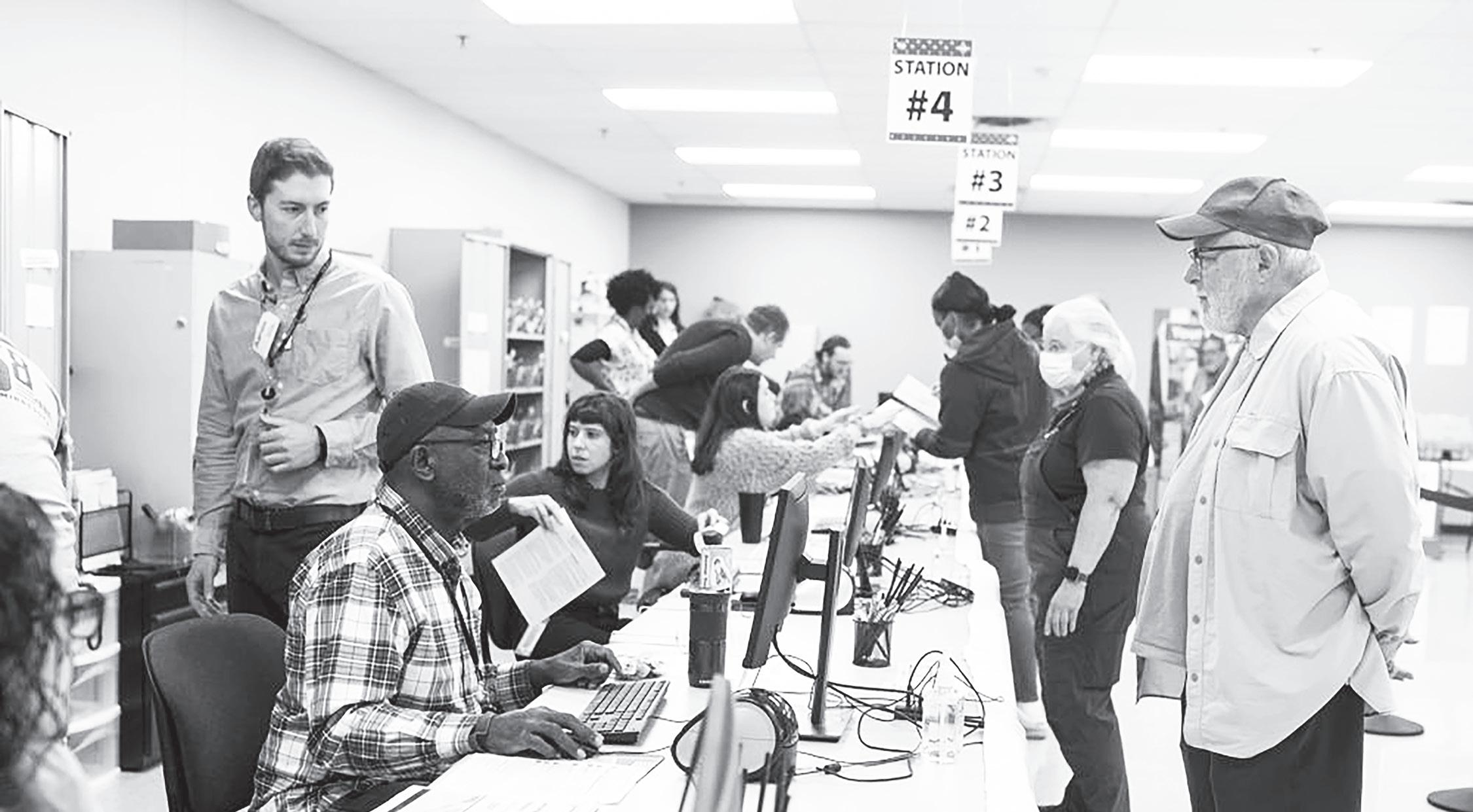
“They’re really looking at things and asking questions,” Lee said. “In a good way. You know, wanting information. They’re curious.”
Minnesota’s ballot includes races for governor and other statewide offices, with control of the Legislature at stake, too.
Zbikowski declined to say for whom he voted. But he said he doesn’t take the right to vote for granted, given that his
family came to America from Russia when it didn’t have free elections. As a part-time poll worker — he was off-duty Friday— he said he’s seen Minnesota’s safeguards firsthand and has full confidence in the integrity of the process.
Other early voters included first-timers Ronald Johnson and his wife, Judith Weyl, who voted on Election Day in 2020. They both said they voted a straight Demo cratic ticket.
“It just feels like this election is so important, life is so busy, I just wanted to have closure on this as quickly as pos sible,” Johnson said.
Johnson, a 74-year-old mental health counselor, said he wanted to support candidates who will preserve a Minnesota election system that he said has integrity.
He said he “absolutely” supports the state’s chief elections officer, Secretary of State Steve Simon, over GOP chal lenger Kim Crockett, who has called the 2020 election a “train wreck” and has advocated for a return to voting mostly on Election Day. Simon, in contrast, calls the 2020 election “fundamentally fair, honest, accurate and secure,” and defends the changes that he oversaw to make voting safer in the pandemic.
“We really care about protecting democracy,” said Weyl, 73.
Aaron Bommarito, a 48-year-old teacher who also said he voted a straight Democratic ticket, said he has no con cerns about his votes being counted properly and has “absolute confidence in the system.” He said voting early was a spur-of-the moment decision. He just hap pened to be driving by the voting center and seized the moment.
“I dropped my two kids off at school, and the ‘Vote Here’ sign was the next thing I saw,” he said.
Cassidy reported from Atlanta.
Associated Press reporter Mead Gruver contributed to this story from Cheyenne, Wyoming.
By Steve Karnowski and Christina A. Cassidy Associated Press
Voters check in with election judges on Friday, Sept. 23, 2022, in Minneapolis. With Election Day still more than six weeks off, the first votes of the midterm election were already being cast Friday in a smattering of states including Minnesota.
Photo: Nicole Neri/AP
- The African Community Newspaper www.mshale.com October 3-9, 2022 Issue 5424Mshale
from Pg.
countries that have no requirements, and there are some countries with very strict requirements,” she says. “If you’re having a long layover and you need to leave the airport, you may be required to show a negative COVID test, or your COVID testing history. So, having all of that paperwork as a part of your travel packet is really important.”
Dr. Elizabeth Dufort, a pediatric infectious diseases physician who currently serves as a medical epidemiologist at MDH, says a visit to a travel health clinic should be part of preparations for international travel for both adults and children.
“When I speak with friends or community members or patients, or families who are going back to visit friends and family, I urge them to think of it as part of the preparation,” she says. “When you start to think about getting your flight, you should also book that appointment and think of that as part of the overall cost of your trip.”

One of the misconceptions those of us who were born abroad often have is that because we are familiar with the environment back home, we do not need to take the same precautions as, say, tourists who are visiting Africa for the first time.
But Dufort, whose 15-year career includes working on global health projects in Kenya, says spending years away from the continent can weaken
one’s immune system and make them just as vulnerable.
“You’re going to go, and you’re going to eat all the food you used to eat and drink the things you used to drink,” Dufort says. “I want you to have that experience with your family or your cousins and your friends. But after you live in the U.S. [for many years], you lose some of that immunity you had built up.”
Dufort says people who are traveling home after being away for a long time need to remember that there are things circulating in the environment that we rarely encounter in the United States. Numerous studies have shown that people who are visiting friends and family abroad have higher rates of returning with diseases like malaria, typhoid, and dengue fever, she says. Making sure that you’re cooking all your food thoroughly, washing fruits and vegetables, and drinking water bottled from a safe source, can keep your trip from becoming unpleasant, Dufort says.
“We want you to remain safe, but also to enjoy your trip and not be sick and holed up inside with fever and diarrhea,” she says.
Dufort adds that those who have
children born in the United States should not forget that their immune systems are much weaker, which makes tolerance of disease-causing germs much lower. Taking preventive measures like obtaining antimalarial drugs and insect repellents is important. But what children do once they get to the destination is just as important in keeping them healthy. Because of their upbringing around pets, American children are also more likely than African children to get closer to animals, which puts them at higher risk of contracting rabies, Dufort says.
“[American-born] kids, are used to these animals that are friendly to pet could get injured by animals that aren’t necessarily pets but guard dogs,” she says. “They might pet an animal in a way it doesn’t like. So, it is important also to talk to children who are old enough to have this conversation, and to watch the younger children.”
So, you’ve followed all the advice and have returned to the United States. Is there anything more you need to do? Como-Sabetti says that if you feel sick, you should see your health care provider immediately. She says outbreaks like COVID-19 and measles have made Minnesota’s health systems to create a comprehensive patient screening process that includes questions that health care providers ask about recent travel history.

“Those screening questions are very, very important,” Como-Sabetti says. “Knowing someone’s travel history is so vital to knowing what kind of assessment they should have. I would encourage
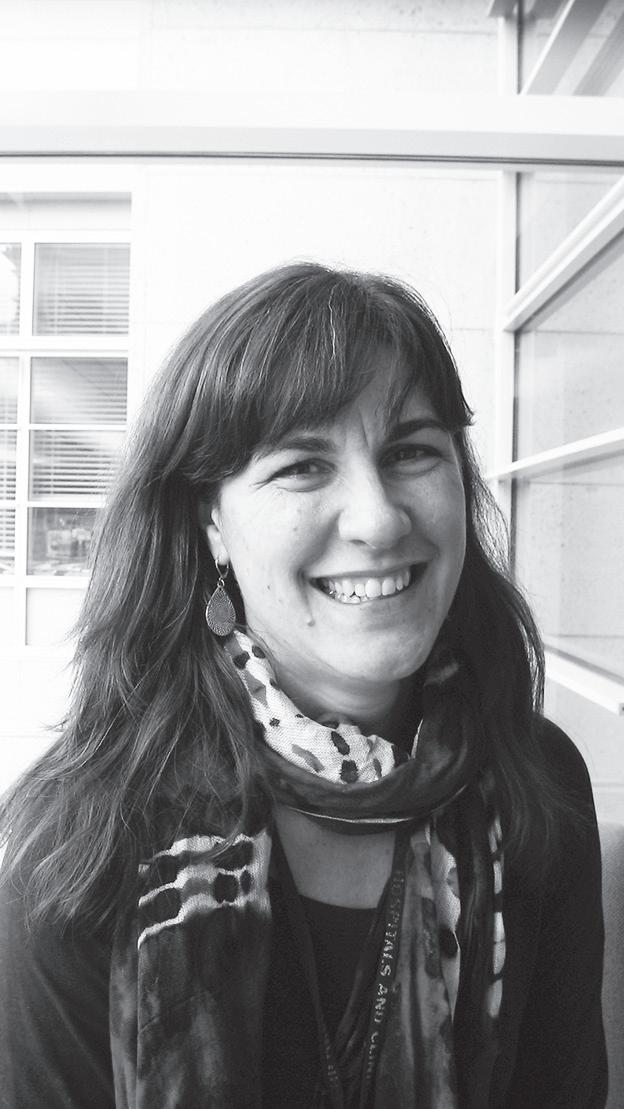
people to answer those questions honestly and openly.”
She says it is also important for patients to ask questions, and to volunteer information to their health care providers about anything in their travel history that might have put them at risk, but wasn’t asked during the screening process.
My family and I learned the hard way that international traveling in a time of
See Travel on Pg. 8
Kathryn Como-Sabetti Photo: Courtesy of MDH
- The African Community Newspaper www.mshale.com October 3-9, 2022 Issue 542Mshale 5
Travel Continued
8
Mshale Text Club: Text AFRICA to 24587 to join
The Jollof Wars: Liberia wins the battle of the Twin Cities
By Panashe Matemba-Mutasa Mshale
There is finally a winner in the Minnesota front of the Jollof Wars. This is unlikely to settle the conflict, but for now, it is the Liberian recipe that emerged as the win ner in Saturday’s battle at the Jollof Fes tival, the first-ever to be held in the Twin Cities.
Chefs from Ghana, Nigeria, and Liberia gathered for a fierce competition to deter mine who in Minnesota can create the most delicious plate of jollof rice, a west African staple. Even Kenya, to which jollof rice is foreign, made an attempt to pull an upset at the festival, which was held at the Gold Room Restaurant in downtown Minneapolis. The lighthearted competi tion gave locals a chance to experience the wide variations of jollof rice and to vote for their favorite.
“Jollof is significant because it’s one of the only cultural expressions across the [West African] region where almost all countries who make it claim to be the best at it,” said the founder of the festival, Ghanaian-born Ishmael Osekre.
Jollof Wars is a colloquial term for the online banter that started between West Africans on whose jollof is the best. Founded in 2017, the Jollof Festival is a nationwide project to celebrate the dish. The festival offers a cultural experience
beloved dish and vote for their country of choice. In addition to tasting and voting, the events often include a night of live performances by singers, dancers, DJs, and traditional west African ensembles.

Although the result from the Jollof Festi val in Minnesota is unlikely to end the Jollof Wars for good, the state is likely to hold a sway in the debate because it has the
tion in the United States. Between 2000 and 2019, Minnesota’s Black immigrant populations increased by almost 250% to about 100,000 people, according to a 2022 Pew Research Center study.
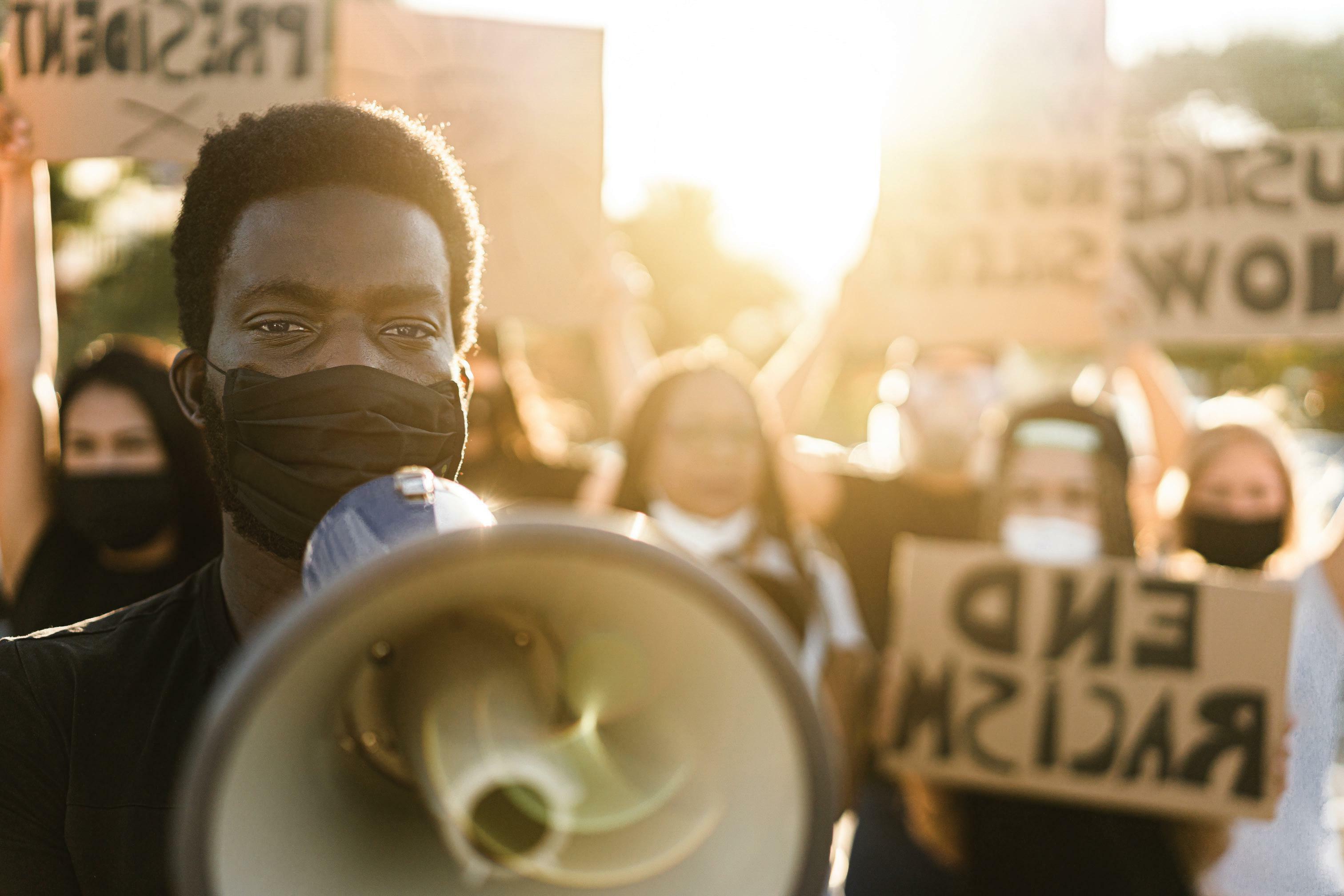
Jollof rice is a one-pot dish believed to have originated in 1300s during the Wolof Empire, also known as the Jolof Empire, which occupied part of the area covered
bia, and Mauritania. The earliest name for the dish was thieboudienne, and it was prepared with rice, fish, shellfish and veg etables. As the region is geographically ideal for crops, rice farming flourished there, and soon the dish became popu lar and spread beyond the Jolof Empire. Today, jollof is a staple in all countries
See Travel on Pg. 7
Participants at the Jollof Festival in downtown Minneapolis on Saturday, September 24, 2022 taste the jollof from the participating countries before they vote.
Photo: Kelechi Uchegbu for Mshale
- The African Community Newspaper www.mshale.com October 3-9, 2022 Issue 5426Mshale
Continued from Pg.
spanning Senegal Cameroon. Modern jollof rice is often comprised of a tomato paste base and incorporates meats such as chicken, beef, or seafood. It is served most often with soups or stews.
Nigerian-born Tulo Ekisola said that attending the festival was a must for her, as she grew up on the popular dish. Ekisola, whose family moved to Minne sota at when she was 4 years old, said she was proud that her family retained their Nigerian cuisine and encouraged her to appreciate it. Though Nigerian jollof can take different forms, Ekisola’s favorite method of preparation includes dried onions, beef, and peas, ingredients she says were her mother’s “go-to” for her recipe.
“The Nigerian community here is strong,” she said. “I think it is great that we have this opportunity to showcase our version of the dish and finally settle the beef.”
Michael Alada, who is also from Nige rian, said that opportunities like the Jollof Festival were needed, especially in Minne sota. Alada said he hoped that the Jollof Festival could be a catalyst for starting more events that honor Africa’s unique cultures and cuisines.
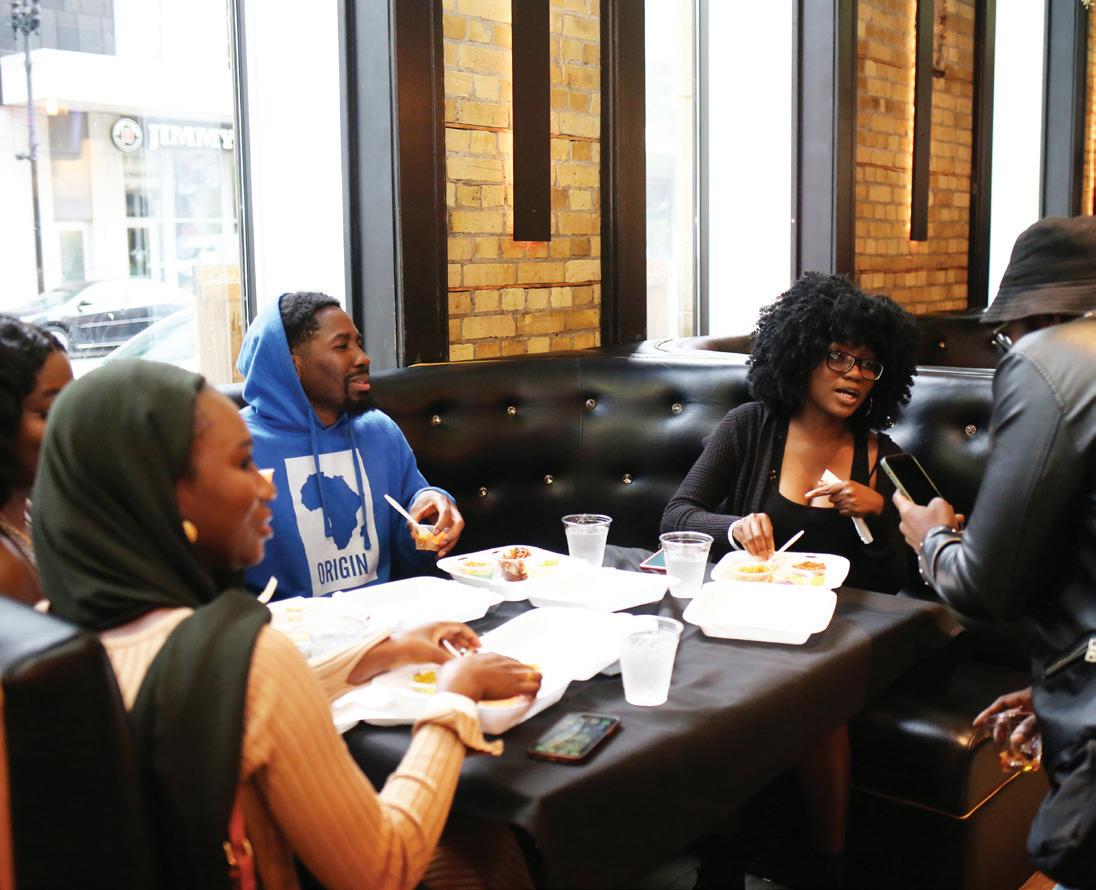
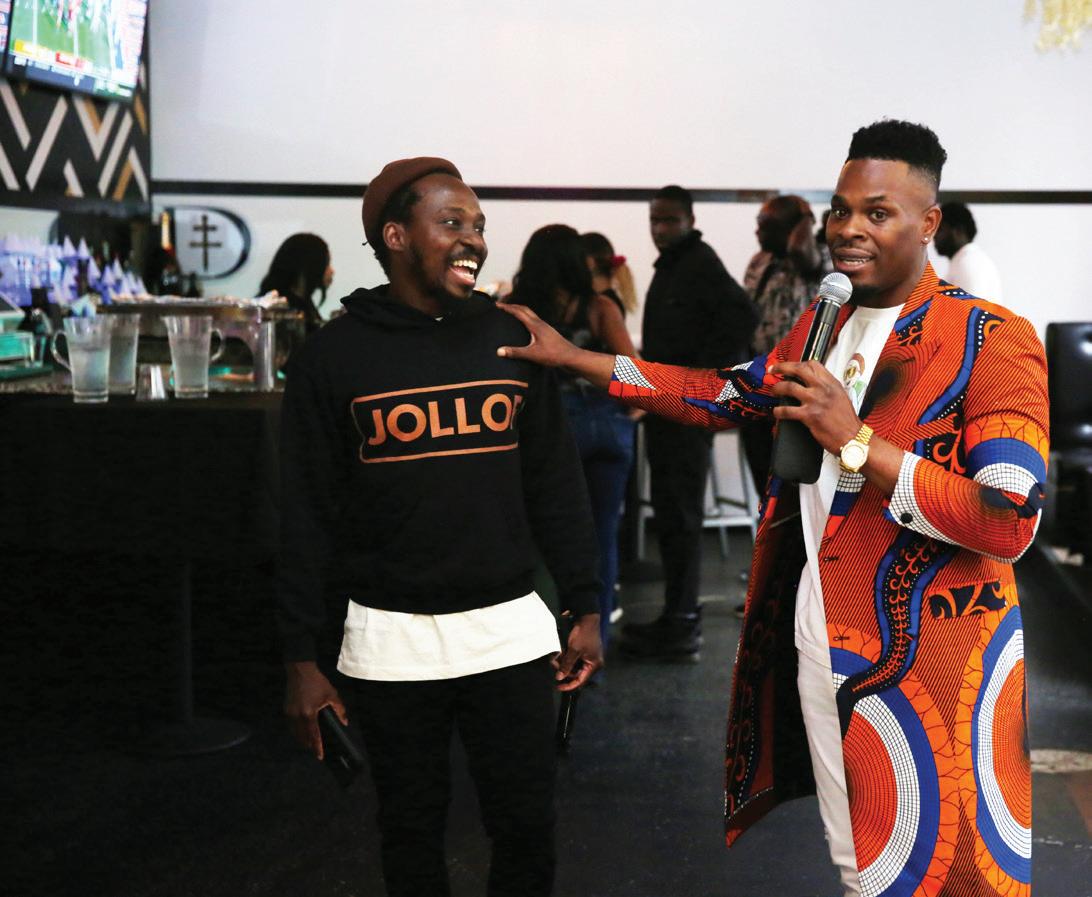
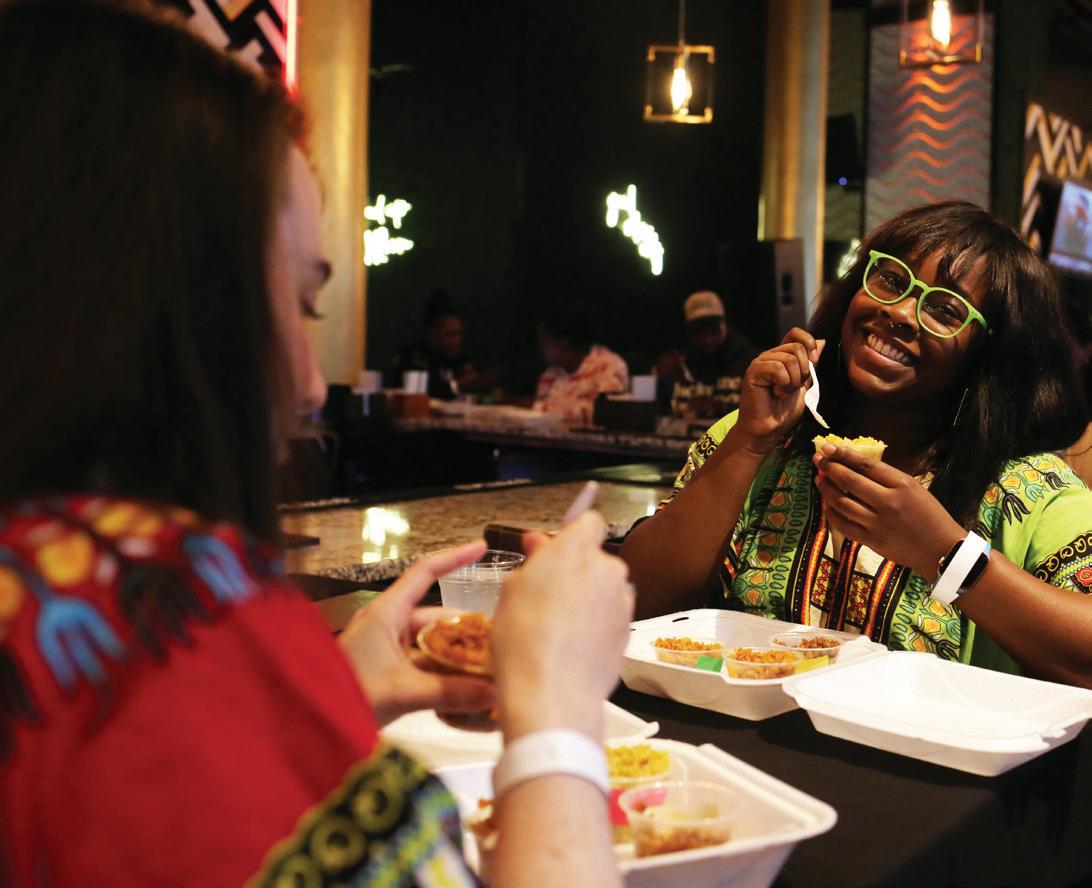

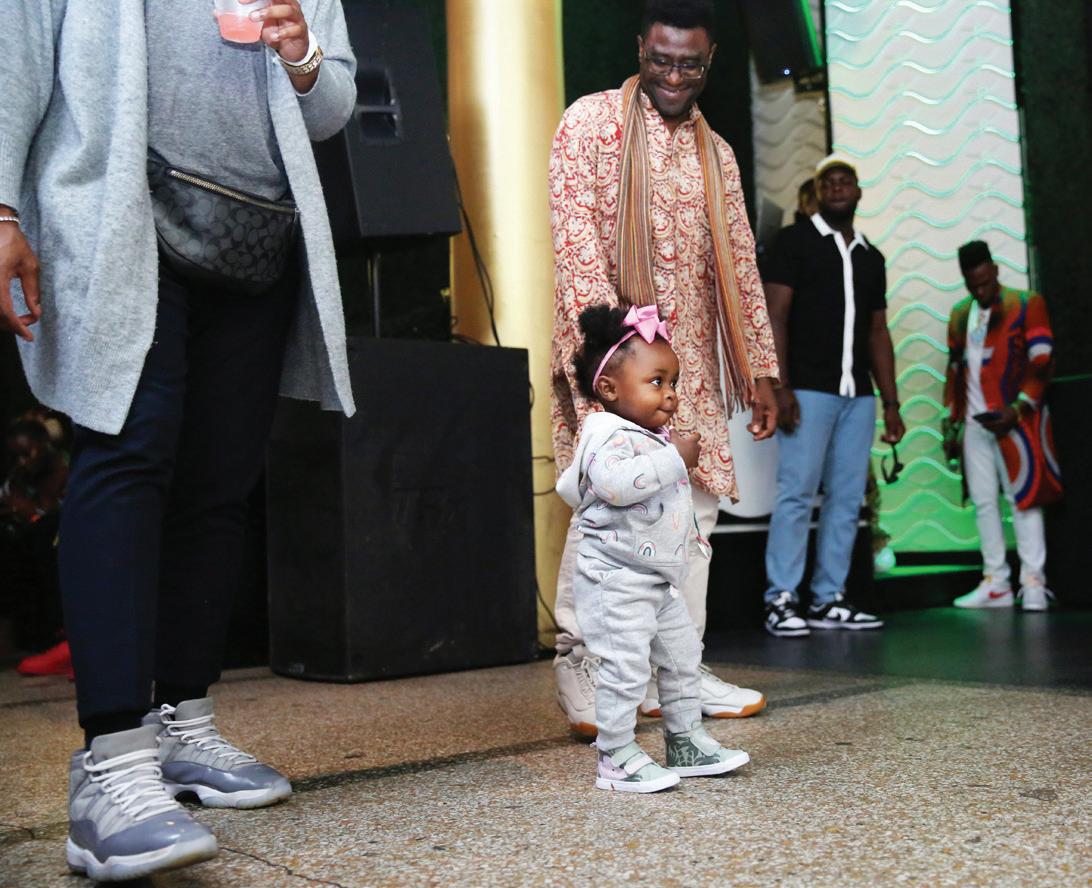
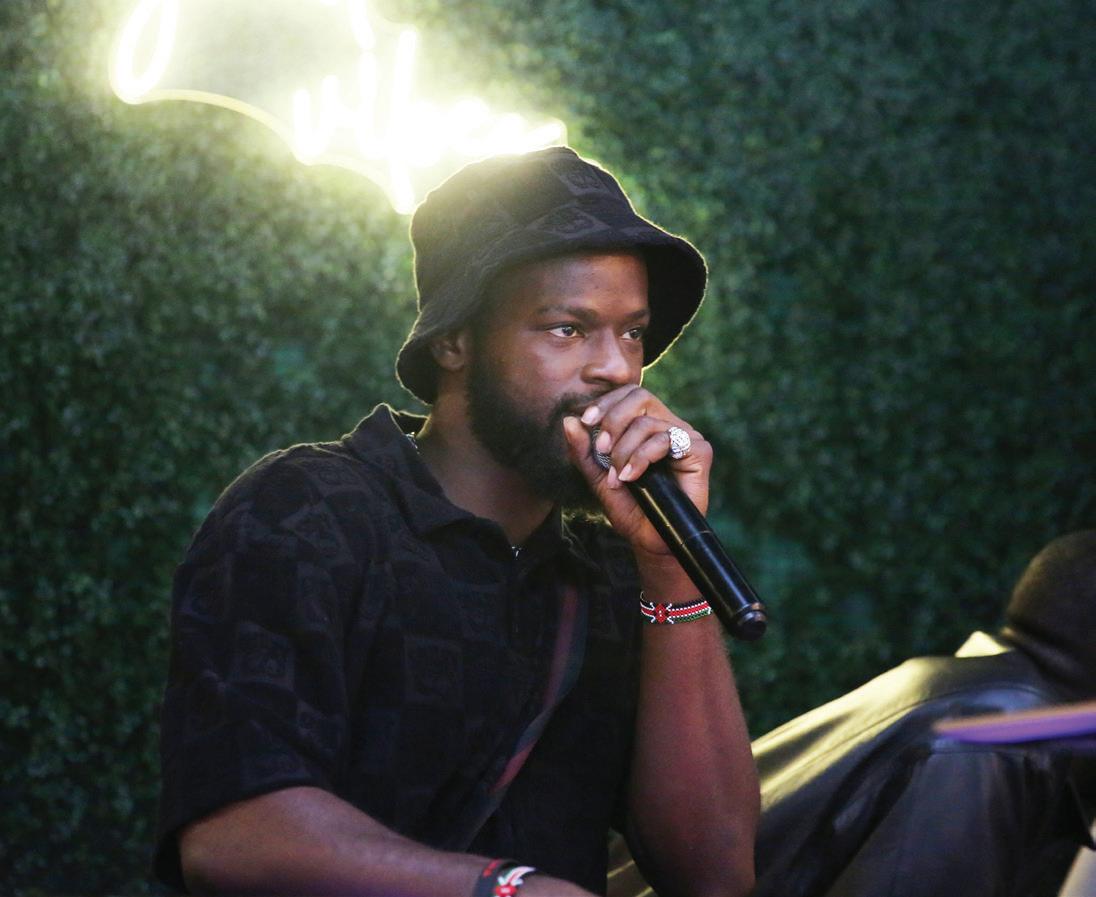
“We need more Nigerian and West Afri can representation in Minnesota, and I think the Jollof Festival is a great way for us to be promoting that,” Alada said.
Kwame Anderson, who was born in Liberia, said he had been enjoying jollof since he was a child. Over the booming speakers from the DJ, Anderson remi nisced about the jollof his mother used to prepare for him and his siblings. Though he admitted bias toward his home coun try, he said he loved to see people in the community coming together over com mon culture.
“The jollof wars are an age-old battle, and I think it’s great we get to settle that with some of the best recipes in the city,” Anderson said.


Sama Alakija, whose parents are from Eritrea and Nigeria, remembers fondly the jollof rice his aunts from his fathers’ side of the family used to prepare during family functions and during holidays. Even though he grew up on common Nigerian recipes, he said he was excited to try the variations from other countries.
“It’s my comfort food, and I think it’s so cool that we get to have an event surrounding it, especially since it’s a cul tural staple for many different countries,” Alakija said.
Binta Kanteh was born and raised in Minnesota to parents from the Gambia, where she says jollof is referred to as benachin. Kanteh said that while Gambia has many variations of the dish, her favor ite includes carrots and cabbage, and she enjoys it with a side of fried fish stuffed with spinach. She said that above every thing, one of the most unique aspects of jollof rice is that it unites the region of West Africa.
“I just love the concept of us all getting together and using rice as a friendly com petition among us,” Kanteh said. “It truly is in good fun.”
Twin Cities Jollof Festival
Photos by Kelechi Uchegbu for Mshale - More Photos @ Mshale.com
(Above left) Samples of Jollof that participants were able to taste. (Right) Dulo Folarin Harris, the festival MC, gets ready to announce the winner of the Twin Cities Jollof Festival.
(Below left) Two friends at the Twin Cities Jollof festival. (Rght) MC Dulo introduces and has a light moment with Ishmael Osekre, Jollof Festival founder.
A participant digs into samples of Jollof rice before he casts his vote while on the right a musician belts out some vocals during Twin Cities Jollof Festival held in downtown Minneapolis on Saturday, September 24, 2022
Binta Kanteh (left with back to camera) enjoys the Jollof Festival with friends in downtown Minneapolis on Saturday, September 24, 2022. Right, a toddler takes in the scene as it was an all family affair.
- The African Community Newspaper www.mshale.com October 3-9, 2022 Issue 542Mshale 7
6
COVID-19 requires more than tickets, passports, visas, masks, vaccinations, home test kits, and hand sanitizers. Fortunately, my wife insisted on speaking with the manager, who booked us on the next flight without any additional fees. (When you travel with small children, they can melt hearts). But that took four hours to negotiate. In the end, we still had to spend more than $500 on
flights. One of them canceled his travel completely and lost more than $1,500.
Below are some resources ComoSabetti and Dufort recommend to make planning your international travel easier. I especially love the Parking Smart list from the U.S. Centers for Disease Control.
Guidance for Travelers: International Travel & Infectious Disease https://www.health.state.mn.us/ diseases/travel/travelers.html
International Travel Health Clinics

Serving Minnesota Residents
https://www.health.state.mn.us/people/ immunize/basics/travel/yfclinic.html

MDH Malaria Resources
https://www.health.state.mn.us/ diseases/travel/materials.html
CDC Travelers’ Health https://wwwnc.cdc.gov/travel
CDC Travelers Destination Health Checklist
https://wwwnc.cdc.gov/travel/ destinations/list
CDC Tips for Parking Smart https://wwwnc.cdc.gov/travel/page/ pack-smart
Should you get a new COVID booster? If so, when?
By Lauran Neergaard Associated Press
John Wherry will wait until later in the fall to consider getting an updated COVID-19 booster. The University of Pennsylvania immunologist knows it’s too soon after his shot late this summer, especially since he’s not at high risk from the virus.
It’s the kind of calculation many Americans will face as booster shots that target currently circulating omicron strains become available to a population with widely varying risks and levels of immunity.
Here are some things to know:
HOW ARE THE NEW BOOSTERS DIFFERENT?
They’re combination or “bivalent” shots that contain half the original vaccine that’s been used since December 2020 and half protection against today’s dominant omicron versions, BA.4 and BA.5. It’s the first update to COVID-19 vaccines ever cleared by the Food and Drug Administration.
anyone who’s already had their primary vaccination series -- using shots from any U.S.-cleared company -- and regardless of how many boosters they’ve already gotten.
IF I JUST GOT ONE OF THE ORIGINAL BOOSTERS, SHOULD I GET THE NEW KIND RIGHT AWAY?
No. The FDA set the minimum wait time at two months. But advisers to the Centers for Disease Control and Prevention said it’s better to wait longer. Some advise at least three months, another said someone who’s not at high risk might wait as long as six months.
CAN I GET A NEW COVID-19 BOOSTER AND A FLU SHOT AT THE SAME TIME?
Yes, one in each arm.
WHAT IF I WANT TO WAIT? People at high risk from COVID-19 are encouraged to get the new booster when they’re due. After all, BA.5 still is spreading widely and hospitalization rates in older adults have increased since spring.
a hotel room near the airport because we were more than 60 miles from home.
My friends weren’t so lucky when they missed their flights. Two of them paid more than $1,000 each to change their
Docket: Minnesota State Immunization Records
https://www.health.state.mn.us/people/ immunize/miic/records.html
WHO’S ELIGIBLE?
Updated shots made by Pfizer and its partner BioNTech are authorized for anyone 12 and older, and rival Moderna’s version is for adults. They’re to be used as a booster for
Most Americans eligible for an updated booster have gone at least six months since their last shot, according to the CDC — plenty of time that another shot should trigger a good immune response.
Dr. Elizabeth Dufort
Photo: Courtesy LinkedIn
- The African Community Newspaper www.mshale.com October 3-9, 2022 Issue 5428Mshale
Religion
Pushed online in pandemic, women of color find safe spaces for faith and healing
By Kathryn Post Religion News Service
On Sundays at 8 a.m., the Rev. Melva Sampson dons her bright, chunky glasses and a frayed pink robe as she welcomes attendees by name to worship via Face book Live. No COVID-19 workaround, Sampson’s ministry has always been online — and for a reason: Its theology isn’t made for Sunday morning walk-ins.
“In this space, while there are many representations of different religious tra ditions, it is the African Indigenous tradi tions that hold center,” Sampson told Religion News Service in a recent phone interview.
The weekly services, called The Pink Robe Chronicles, are distinctly womanist and Afrocentric — focusing on the spiri tual wisdom of Black women and mem bers of the African diaspora. Sampson refers to the gathering as a “digital hush harbor,” adapting the refuges where 19thcentury enslaved Africans would secretly gather, integrating African and Christian rituals.
She began the group unintentionally six years ago, after she had been disinvited to preach at her own church outside of Atlanta, Georgia, and reeling from the death of a Black woman in Baltimore who had been killed by police. Sampson went on Facebook to share brief reflections on lessons inherited from her grandmother. At first it was attended by friends and family, but it grew, and Sampson’s medi tations now cover topics such as sacred motherhood or the burdensome myth of the Strong Black Woman and delve into spiritual books by Black women authors — “Red Lip Theology,” by Candice Marie Benbow; “Divining the Self,” by Velma Love; “Making a Way Out of No Way,” by Monica Coleman; and others.
Today the meditations are followed by a Zoom discussion called The Clearing, where participants are invited to “talk back” to the chronicle shared. About 50 women normally attend, though in the early days of COVID-19, she could expect some 175.
Sampson, who is a minister in the Pro gressive National Baptist Convention and assistant professor of preaching and practical theology at Wake Forest Uni versity School of Divinity, said, “It allows women to engage and practice and stand and speak from their own lived experi ences, validating them in a way that tradi tional religious faith has not.” The group’s spirituality is occasionally Christian, but it pushes past the bounds of organized religion.
The Pink Robe Chronicles is just one of several groups that grew during quaran tine but have taken on a post-pandemic life. Several groups are populated by women of color, many of them grap pling with religious trauma. For them, the digital meeting places provide a spiritual community free from the symbols and hierarchies that some find triggering.
Liberated Together’s online presence took off in May 2020, days after George Floyd’s murder, after public theologian
Erna Hackett took to social media on a whim to ask whether any Asian American women were interested in meeting virtu ally to discuss anti-Blackness. To her shock, about 100 people said yes.
“In lockdown, we were desperate for connection. Everyone was watching stuff go down with the murder of George Floyd and all this anti-Asian hate. So that’s when I started experimenting — maybe this could be a thing?”
Soon, Hackett was turning people away, having filled up virtual rooms with non-Black Latinas working on anti-Black bias, 20-something women of color lead ers or those wanting to “decolonize with badass Indigenous grandmas.”
Liberated Together charges from $450 to $1,800 per “cohort,” depending on the number of meetings and whether an inperson retreat is included. (Scholarships, Hackett said, are available.) The cost, she explained, ensures that the group leaders are fairly compensated.
Unlike Sampson’s group, Hackett restricts hers to women of color. “There’s really no space in the nonprofit world, racial justice world or the ministry world that is just for women of color, queer women of color,” she said.
The Liberated Together website makes clear that some debates are off-limits, including whether women can be spiritual leaders, whether queer women should be fully included or if trans women are women, and if patriarchy and white supremacy are real.
“I’m not trying to be for everybody. I’m not trying to be a big tent,” said Hackett. “For many of the women, when the Zoom opens up and they know everybody there has agreed to be not just tolerant, but actively co-creating a space that centers liberated queerness and queer theology, it starts the conversation in wildly differ ent spaces.”
That proved to be true for the Rev. Riana Shaw Robinson, a pastor in Oakland, Cali fornia, who attended Liberated Together’s cohort for women of color over 30. She said one of the biggest gifts was simply being heard and believed.
“My years in seminary, in the ordina tion process and serving at a multiethnic church wore me down to a very sad and burnt-out place,” said Shaw Robinson. “And it was women of color who put me back together, who listened me back into life and invited me back into joy.”
Some women who participated in Lib erated Together’s cohorts saw the need for another group, in which they could start to imagine the spiritual spaces they wanted to be part of long-term. Hackett teamed up with three others in late 2021 to launch QUNI, a network for disabled people, queer people of color and women of color. QUNI — a made-up word that allows others to decide what it means — has a podcast and an Instagram account and has offered a series of virtual listen ing sessions and gatherings.
Erica Ramos-Thompson, a master’s degree student at Gonzaga University in Spokane, Washington, who is now a QUNI facilitator, attended one of the first listen ing sessions for disabled people of color.
“Being surrounded with people that have more than one intersectional iden tity point overlap with me, I was like, I can breathe. I’m not holding my breath, and I’m not preparing to explain or justify myself in this space,” said Ramos-Thomp son. “I felt like I needed to take shoes off, it felt that holy and sacred to me.”
Ramos-Thompson, who now leads QUNI groups for disabled people of color, has begun running Disability 101 seminars for nondisabled people as well.
This fall, QUNI will launch networks for spiritual directors and church planters. One of the women who hopes to “birth” a church, as she puts it, is Shaw Robinson,
who says her church will start off with an online Advent series later this year. She says the church will initially only be open to women of color, who will set the cul tural foundation before it opens up to oth ers. Eventually, she hopes the church will also have an in-person component.
Sampson is also looking to expand the Pink Robe Chronicles’ in-person ministry. The group has given rise to a traveling event series called the 1Love Festival, and Sampson already visits community members with health problems and has officiated weddings for folks who got to know her online.

The group has also used its networks to raise more than $20,000 to support Black women-led households during the pandemic and offers scholarships for Black women attending historically Black colleges and universities.
“Just because I am not tied to a brick and mortar church does not mean I am out of touch and does not mean that I am not called,” said Sampson. “It means I have been called alongside others to usher in something new.”
 Members of the Liberated Together team.
Photo: Kayleigh Shawn via RNS
The Rev. Melva Sampson Photo: Courtesy of Rev. Sampson
Members of the Liberated Together team.
Photo: Kayleigh Shawn via RNS
The Rev. Melva Sampson Photo: Courtesy of Rev. Sampson
- The African Community Newspaper www.mshale.com October 3-9, 2022 Issue 542Mshale 9
Art & Entertainment
Seun Kuti and Egypt 80 prove their mettle on Dakota stage in Minneapolis
BySusan Budig Mshale Contributing Writer
Seun Kuti & Egypt 80 brought their blistering and buoyant performance to the Dakota in downtown Minneapolis last week that had the initially reserved crowd clapping and hooting.
The number of Black immigrants living in Minnesota has increased 274% over the last two decades, now over 100,000, according to a Pew Research Center report. To that I say, Hallelujah because among so many positives, it also means we have more drawing power to entice bands from Africa to visit our state.

The Nigerian band played to a full house on Wednesday evening, September 21st. It was the perfect way to end astronomical summer by turning up the heat as we head into fall and winter.
The Dakota pulled it off. They managed to assemble Seun Kuti & Egypt 80 all onto its small stage, all four horns, two guitars, a keyboard, a drum set, two back-up singers, and Seun himself. The Dakota somehow convinced Seun and his band to keep a lid on their volume, only twice hiking the sound up to “harmful
levels” of 80 decibels. In other venues and spaces, this band routinely hits 80+ db and earplugs are required.
But Wednesday evening, we wanted to hear it all. From their old music written by Afrofunk King, Fela Kuti, when he led the band prior to 1998 to their new music including newly released tracks, Love and Revolution and Emi Aluta, released by The Orchard on June 24th of this year.
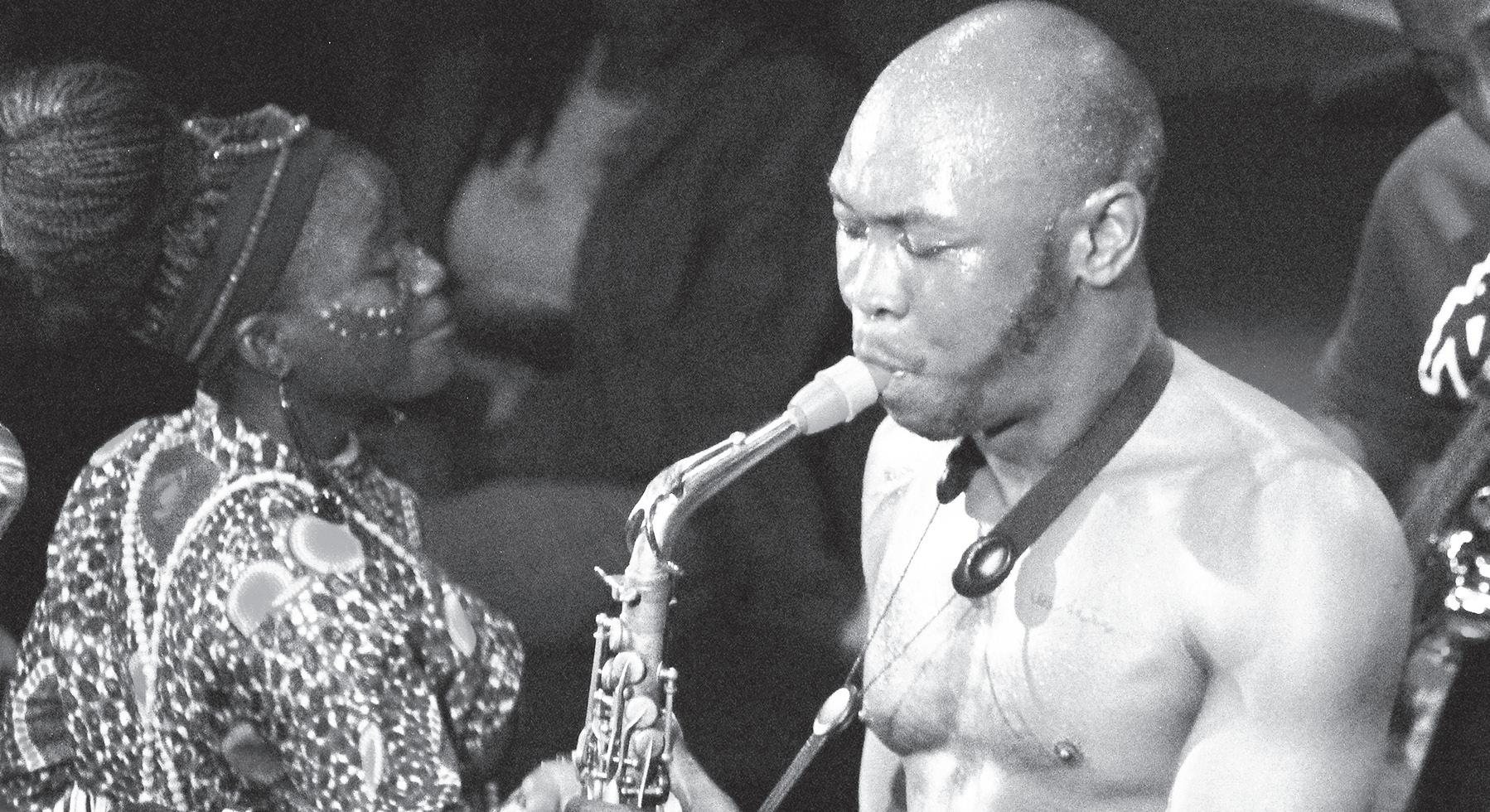
Seun introduced his new number, Love and Revolution, by telling us, “I wrote this song because my wife says, you don’t write love songs. So to me, love has to be a revolutionary idea. We have to embrace the mother-side.”
As Seun sang the lyrics, “You don’t want to mess with her, I’d advise ya…” the audience member sitting next to me had been recording the band, I couldn’t look at the stage from my vantage point without seeing his phone. The only thing he’d recorded after several minutes were the dancers’ backsides, zoomed in on their shimmying, gyrating…backsides.
Aside from that curious and humorous side note, the song was stunning. Seun writhed and twisted on stage, playing multiple instruments and dancing and singing. Wearing a jumpsuit of red, black,
and white plumes, he moved so much, he expended enough energy to run a marathon.
It wasn’t until the last song, Emi Aluta, that his shirt came off, by the time he’d finished the song, he was spent. He’d given us his all and exited the stage, leaving the rest of the band to wrap up the number.
After the show, I asked the drummer, Mario Orsinet, if he thought the audience
was too reserved in showing their appreciation for the band’s performance. Orsinet graciously said that he could tell the patrons were really listening and attentive, “They were really into us.” He didn’t think wild audience participation with dancing and shouting was necessary.
He let us off the hook.
But next time this award-winning, effusive band plays in Minnesota, may we all get up and dance our feet off.
Seun Kuti playing the saxophone during his show at the Dakota in Minneapolis. Photo: Jasmine Webber/Mshale
- The African Community Newspaper www.mshale.com October 3-9, 2022 Issue 54210Mshale
His first football season, Isaiah told us, ‘Wear a jersey with my name on it. I want everyone to know you’re here for me.’ Darnell and Denna, adopted 16-year-old Isaiah YOU CAN’T IMAGINE THE REWARD LEARN ABOUT ADOPTING A TEEN ADOPT US KIDS .ORG
Unite to Fuel Change
We live in a world where divisions and poverty affect everyone but when we unite as changemakers we can create a community where all people thrive.
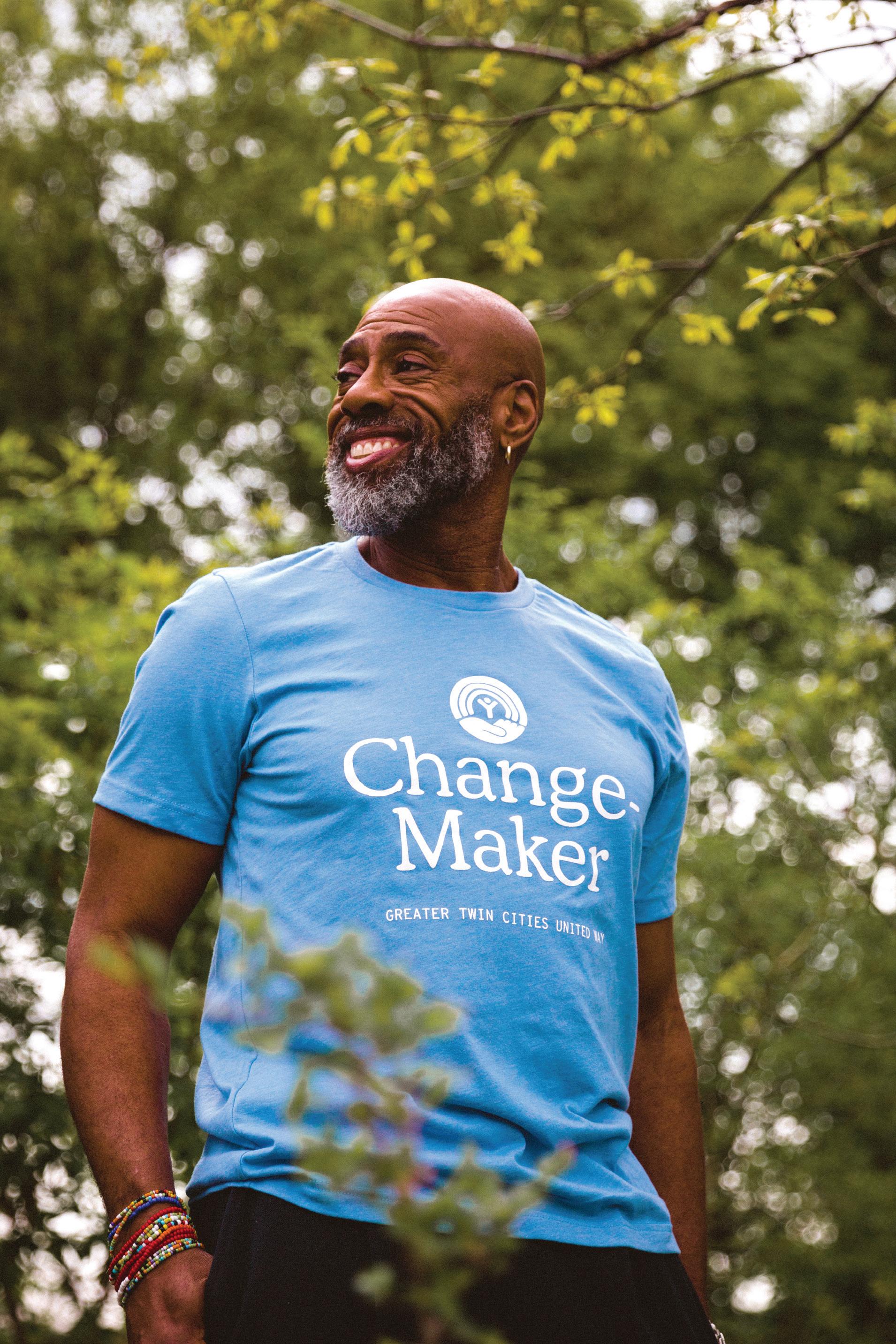
- The African Community Newspaper www.mshale.com October 3-9, 2022 Issue 542Mshale 11
JOIN THE MOVEMENT VISIT GTCUW.ORG TO LEARN MORE






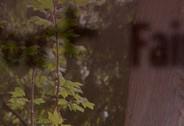

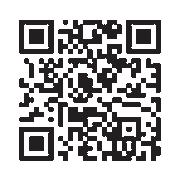
- The African Community Newspaper www.mshale.com October 3-9, 2022 Issue 54212Mshale You Fair Housing A Better Community The solution to housing discrimination starts with you. If you have been trying to buy or rent a house or apartment and you believe your rights have been violated, contact HUD or your local fair housing center. The Fair Housing Act prohibits housing discrimination because of race, color, sex, religion, national origin, familial status or disability. + Fair Housing Is Your Right. Use It. Visit www.hud.gov/fairhousing or call the HUD Hotline 1-800-669-9777 (English/Español) 1-800-927-9275 (TTY) A public service message from the U.S. Department of Housing and Urban Development in partnership with the National Fair Housing Alliance. The federal Fair Housing Act prohibits discrimination because of race, color, religion, national origin, sex, familial status or disability. For more information, visit www.hud.gov/fairhousing. SCAN HERE FOR MORE INFO









 get inspired by Houston White’s story
get inspired by Houston White’s story




















 Members of the Liberated Together team.
Photo: Kayleigh Shawn via RNS
The Rev. Melva Sampson Photo: Courtesy of Rev. Sampson
Members of the Liberated Together team.
Photo: Kayleigh Shawn via RNS
The Rev. Melva Sampson Photo: Courtesy of Rev. Sampson









